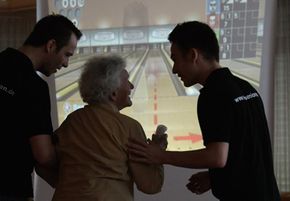"Rock Band," "Wii Fit" and "Madden Football" are all popular video games that people line up to buy upon their release. Designing these video games requires creativity and imagination. With the continuing demand for more action-packed games, careers as video game designers are expected to grow.
For those who not only enjoy playing video games, making video games requires imagination. Video game designers devote themselves to exploring every aspect of a game and to mastering its outcome.
Advertisement
Have you ever wondered how to become a video game designer? Video game design is a challenging, booming business with many specialized jobs and numerous points of entry. Potential video game designers typically are passionate about this highly competitive field.
Video game designers need a variety of skills and innate abilities. The skills largely involve training in computer graphics, animation and software design. Often, the prospective game designer will obtain such training at credentialed programs at technical schools.
While a student of video game design can study hard and learn the required computer skills, another aspect of this career is harder to teach. A successful video game designer needs a powerful imagination in order to construct the alternative world of the game in his mind before creating it in cyberspace.
The need for video game designers and related careers are expected to grow in coming years as consumer demand for such products increase. The U.S. Department of Labor foresees a 32 percent increase in software publishing jobs in the next five years. Meanwhile, consumer demand continues to grow. The market research company NPD Group reported in August 2008 that sales of video game hardware and software increased by 28 percent in July 2008, reaching almost $1.2 billion [source: Fox News].
Do you want to know more about how to become a video game designer? Would you like to learn about the skills you will need and how to gain experience? Do you want to know how much video game designers earn and how it differs from other video game-related fields? Read on to find out.
Advertisement







